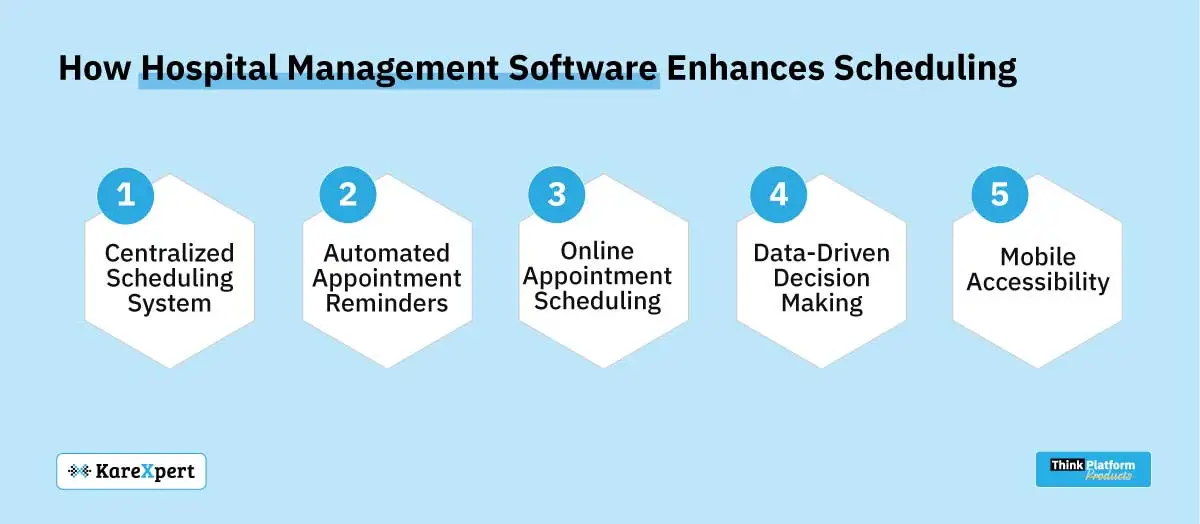Optimizing Patient Appointment Booking in Hospital Management Systems

In the complex ecosystem of healthcare, efficient management is crucial for ensuring patient satisfaction and operational excellence. One of the critical components that significantly impact both patient experience and facility operations is patient appointment scheduling. With advances in technology, hospital management software has become an indispensable tool, aiding healthcare facilities in streamlining their scheduling processes to improve outcomes and enhance efficiency.
The Necessity of Streamlined Scheduling
Effective patient scheduling is more than just booking appointments. It encompasses managing patient flow, reducing wait times, optimizing physician schedules, and enhancing overall patient care. Inefficient scheduling can lead to extended waiting periods, patient dissatisfaction, increased stress for staff, and lost revenue for the hospital. Therefore, streamlining this process through sophisticated hospital management software is essential.
How Hospital Management Software Enhances Scheduling
1. Centralized Scheduling System
Hospital management software integrates all scheduling-related activities into a single, centralized system. This integration allows for real-time visibility of all appointments, making it easier to manage schedules across different departments and specialists. Centralized systems also prevent overbooking and scheduling conflicts, ensuring a smooth workflow.
2. Automated Appointment Reminders
Missed appointments are a common issue that disrupts the planning and resource allocation within hospitals. Modern hospital management software often includes automated reminder systems that notify patients of upcoming appointments via Whatsapp, SMS, email, or app notifications. This feature significantly reduces no-shows and helps in better utilization of the hospital’s resources.

3. Online Appointment Scheduling
Allowing patients to schedule their appointments online at their convenience can greatly enhance the patient experience. It reduces the workload on administrative staff and increases the accuracy of the data captured since patients input their own information. Online scheduling integrated with real-time calendar updates ensures that the scheduling is efficient and free from double bookings.
4. Data-Driven Decision Making
With comprehensive data collection and analytics capabilities, hospital management software provides valuable insights into scheduling trends and patient behaviors. Hospitals can use this data to optimize their schedules, allocate resources more effectively, and even predict peak times to better manage staff and patient flow.
5. Mobile Accessibility
Mobile-enabled hospital management software allows doctors and staff to access schedules on-the-go. This flexibility improves communication and coordination among staff, leading to more efficient handling of appointments and adjustments. Additionally, with mobile access, patients can book or reschedule their appointments easily from their smartphones. It has to work on all types of devices including iOS, Android, and web.
Real-world Impact of Streamlined Scheduling
Streamlined scheduling can have a profound impact on a hospital’s operations and its patients’ experiences. For instance, reduced wait times lead to higher patient satisfaction and improve the quality of care, as physicians can spend adequate time with each patient. Efficient scheduling also maximizes the productivity of the staff, as they can plan their activities around a predictable schedule.
Addressing Challenges in Implementing New Scheduling Systems
While the benefits are clear, implementing a new hospital management system can come with challenges, such as resistance to change from staff or the initial learning curve associated with new software. Adequate training and clear communication about the benefits of the new system can ease this transition. It’s also important to choose software with an intuitive interface and reliable support from the provider.
Future Trends in Patient Scheduling
As technology evolves, so do the capabilities of hospital management software. Future advancements may include the use of AI and machine learning to predict appointment cancellations and no-shows, enabling even more efficient schedule adjustments. Integration of telemedicine after initial consultations, and seamless synchronization with health apps on patients’ devices are also on the horizon.
Conclusion
Streamlining patient scheduling with advanced hospital management software not only enhances the efficiency of healthcare delivery but also significantly improves the patient experience. As healthcare continues to evolve, leveraging these technological advancements will be crucial for hospitals aiming to maintain a competitive advantage and deliver superior patient care. By adopting sophisticated scheduling solutions, hospitals can ensure they are well-equipped to meet the challenges of modern healthcare delivery.
Contact KareXpert today to know more!
Website: https://www.karexpert.com/
Email: info@karexpert.com
Phone: +91-9069113330
